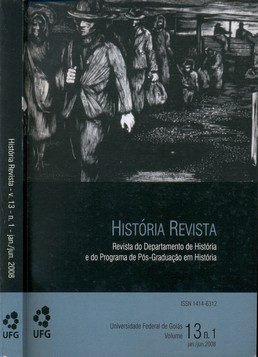POLITICAL RELATIONS AND NEW MEANINGS OF A DEVOTIONAL TRADITION: PROCESSIONS OF PENITENTS IN PlRENOPOLIS-GOIÁS
DOI:
https://doi.org/10.5216/hr.v13i1.5417Abstract
ABSTRACT:
In the modern ibero-american societies, the processions - organized by missionaries in the early years of colonization - acquire new meaning since in them reside a complex system of representations embodying social groups which dialogue and interact with each other before, during and after the walk. At the same time, it can be noted during the procession, devotional acts stemming from hybrid religious sources where symbolic trade favouring multiple spatial and ritualistic interventions is promoted. Each new procession reverts to the origin of man and people, thus, to understand a mosaic of interpersonal relations and different groups, secular traditions, religiousness and symbols subsisting in the scenario of the processions facilitate interpretations of the Brazilian cultural identity in general, of Goiás in particular and of Pirenópolis, specifically.
KEY WORDS: Popular party, procession, identity, Pirenópolis, popular Catholicism.
Downloads
Downloads
Published
How to Cite
Issue
Section
License
Declaração de Direito Autoral
Concedo à História Revista o direito de primeira publicação da versão revisada do meu artigo, licenciado sob a Licença Creative Commons Attribution, que permite o compartilhamento do trabalho com reconhecimento da autoria e publicação inicial nesta revista.
Afirmo ainda que meu artigo não está sendo submetido a outra publicação e não foi publicado na íntegra em outro periódico, assumindo total responsabilidade por sua originalidade, podendo incidir sobre mim eventuais encargos decorrentes de reivindicação, por parte de terceiros, em relação à autoria do mesmo.



